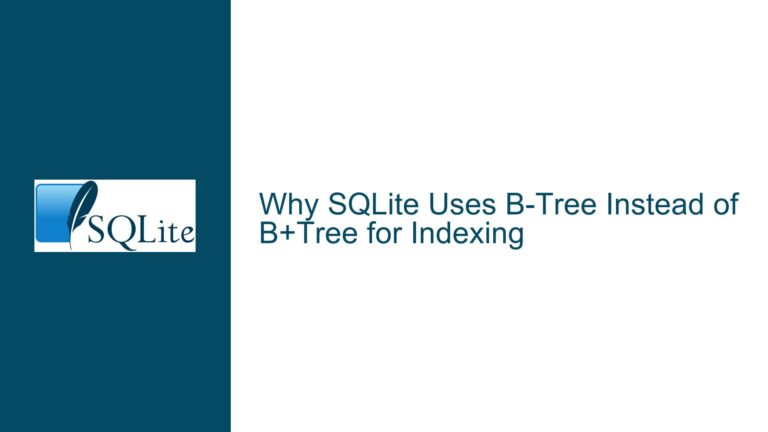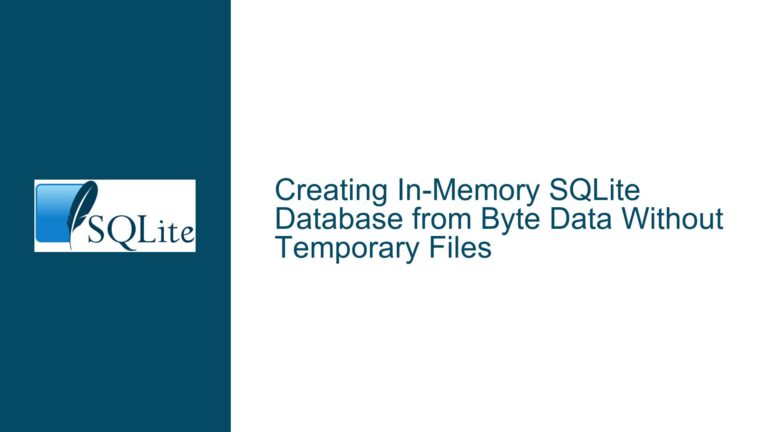SQLite Parameter Binding Issue with sqlite3_bind_text and sqlite3_expanded_sql
SQLite Parameter Binding Mismatch in Prepared Statements When working with SQLite in C++ using the amalgamation, a common issue arises when binding parameters to a prepared statement and subsequently using sqlite3_expanded_sql to debug or log the final SQL query. The problem manifests when multiple parameters are bound to a prepared statement, but the expanded SQL…








